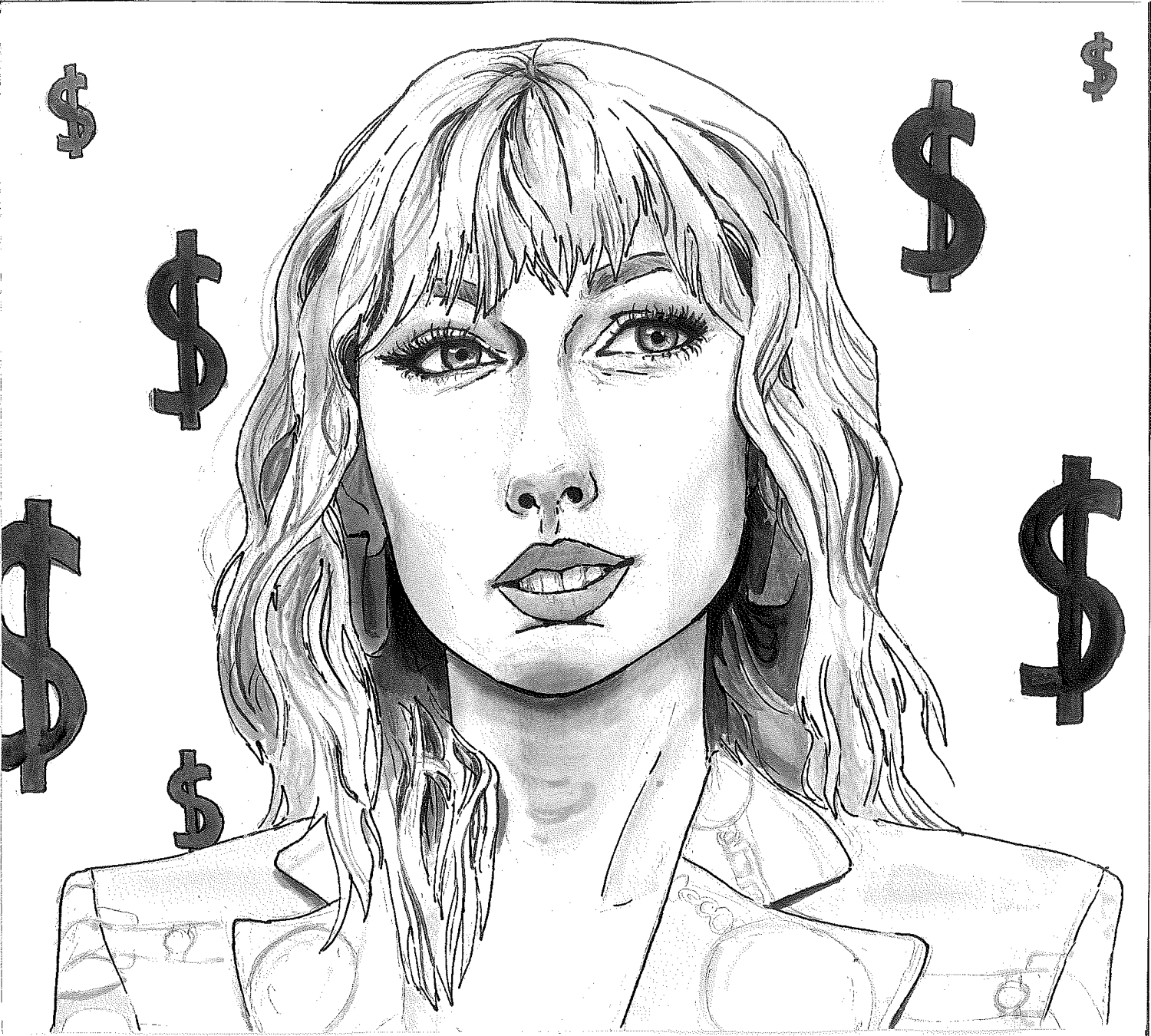
On Nov. 1, Taylor Swift’s fans celebrated the end of a tumultuous two years. The singer-songwriter can now legally re-record her first five albums.
Previously, in November 2018, Swift left her former label, Big Machine Records, and signed with Republic Records. Per Swift’s conditions, Republic offered her ownership of the albums she records with them and promised to distribute profit from their Spotify shares to all of their artists.
In August 2019, Swift announced on CBS Sunday Morning her wish to re-record her albums made with Big Machine Records. As the clause in the contract with her former record label preventing her from doing so expired this month, #TaylorisFree on Twitter trended worldwide.
Four months ago, Swift released “folklore,” a surprise indie-folk hit and the top-selling album of the year thus far. So why would she want to return to her 2006 barn-stomping country debut album?
The answer lies in a July 2019 transaction between Scott Borchetta, the manager and owner of Swift’s former label Big Machine Records, and Scooter Braun, chairman of Ithaca Ventures.
For a reported $300 million, Braun acquired the catalog of all Big Machine Records’ artists, featuring Swift’s first six albums. Big Machine Records would not accept Swift’s offer to buy her music, demanding instead that she pay for it by delivering six more albums to the label. Swift refused and did not know about Braun’s acquisition until it was announced on social media.
For Braun, this whopping price tag was a steal. Billboard values Swift’s catalog, excluding her 2020 release “folklore” with Republic Records, between $400 and $450 million. Swift was the first woman to win Album of the Year at the Grammys twice, for “Fearless” (2008) and “1989” (2014). The fact that these albums accrued enormous value over the years is hardly surprising.
Braun owns Swift’s “masters”: her original album recordings. Every time a Lewis & Clark student streams “Love Story” on Spotify or Apple Music, Braun profits. Every time a film or television show would like to feature “Shake it Off” in their trailer, Braun makes money from selling that license.
Although it may seem odd that Braun will profit from albums that he did not help create, this problematic exchange is typical in the music industry. Like Swift, heavy-hitters Ariana Grande and Drake do not own their masters.
But since the news of the Big Machine Records acquisition broke, Swift has launched a rebellious, excoriating campaign to reclaim her life’s work and make Braun’s purchase worthless. Media outlets reduce this to a “feud,” characterizing Swift as catty and unwilling to cooperate with Braun, whose former clients include her famous enemy Kanye West.
Arguably, the truth is more complicated and suggests that misogyny in the music industry contributed to Swift’s experience. In the Tumblr post heard round the world, Swift wrote, “This is what happens when you sign a deal at fifteen to someone for whom the term ‘loyalty’ is clearly just a contractual concept,” referencing her former label head, Borchetta. She has compared her past teenage girl self to a prize pig Borchetta fattened for slaughter. For his part, Braun reposted and later deleted a friend’s Instagram story that captioned a news article about the acquisition with “when your friend buys Taylor Swift!!!”
“These are two very rich, very powerful men, using $300 million of other people’s money (private equity firm the Carlyle Group, who funded Braun’s investment) to purchase, like, the most feminine body of work,” Swift said in an interview with Rolling Stone Magazine. Indeed, it is hard to hear Taylor Swift without imagining “Love Story” and its sweeping princess aesthetics.
Since Braun’s acquisition, Swift has refused any sync uses of songs from her first six albums in film or advertisements. Without Swift’s approval, her songs cannot be used at all in visual media. This prevents Braun from making a profit off licensing fees.
Once Swift re-records her first five albums, the new re-recordings that she owns will be available for sync uses. She will continue to veto sync uses of the original masters that Braun owns. As for Swift’s sixth album, “reputation,” her contract stipulates that she cannot re-record until November 2022.
Swift’s frustration comes alongside announcements like Billie Eilish’s co-publishing deal with Apple Music. Put simply, labels need big-name talent more than Swift and the celebrity cadre need them. Rather than relying on her new label, Republic Records, for help with musical production, Swift has Grammy Award-winning producers Jack Antonoff and Aaron Dessner recording with her already.
In the music industry, the line between singer and producer blurs. Swift herself co-produced her single “betty” off of “folklore.”
Taylor Swift changed the music industry in 2015 when she withheld her album from Apple Music until they paid artists royalties for music streamed during free trials, citing her support for young songwriters struggling to escape debt. In re-recording her first five albums, she might change the music industry again — and for the better.
“Hopefully, young artists or kids with musical dreams will read this and learn about how to better protect themselves in a negotiation,” she wrote in the Tumblr post
Subscribe to the Mossy Log Newsletter
Stay up to date with the goings-on at Lewis & Clark! Get the top stories or your favorite section delivered to your inbox whenever we release a new issue.

Leave a Reply